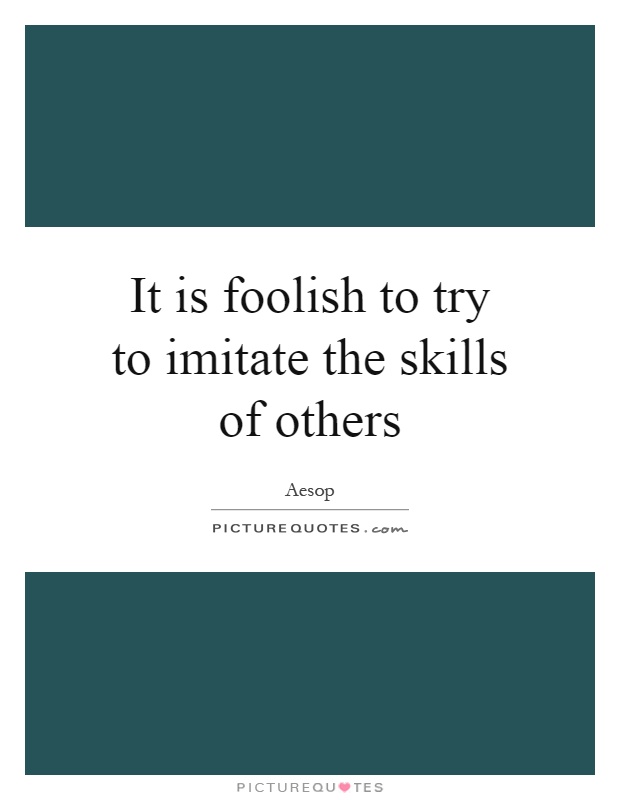It is foolish to try to imitate the skills of others

It is foolish to try to imitate the skills of others
In the world of Aesop's fables, the idea of trying to imitate the skills of others is often portrayed as foolish and ultimately futile. Aesop, a legendary Greek storyteller known for his moralistic tales, frequently used animals as characters to convey important life lessons. One such fable that exemplifies the folly of trying to imitate others is "The Fox and the Grapes."In this fable, a hungry fox comes across a vine of ripe, juicy grapes hanging just out of reach. The fox tries and tries to jump up and grab the grapes, but no matter how hard he tries, he cannot reach them. Frustrated and defeated, the fox eventually gives up and walks away, muttering to himself that the grapes were probably sour anyway.
This fable serves as a cautionary tale about the dangers of envy and the futility of trying to imitate the skills or possessions of others. The fox's desire for the grapes blinds him to the reality of his own limitations and leads him to make excuses for his failure. By trying to imitate the skills of others, the fox only ends up feeling inadequate and resentful.
Aesop's fables often emphasize the importance of being true to oneself and embracing one's own unique talents and abilities. In "The Tortoise and the Hare," for example, the slow and steady tortoise ultimately wins the race against the fast but overconfident hare. The moral of the story is that it is better to be true to oneself and work with what one has, rather than trying to imitate others and falling short.












 Friendship Quotes
Friendship Quotes Love Quotes
Love Quotes Life Quotes
Life Quotes Funny Quotes
Funny Quotes Motivational Quotes
Motivational Quotes Inspirational Quotes
Inspirational Quotes